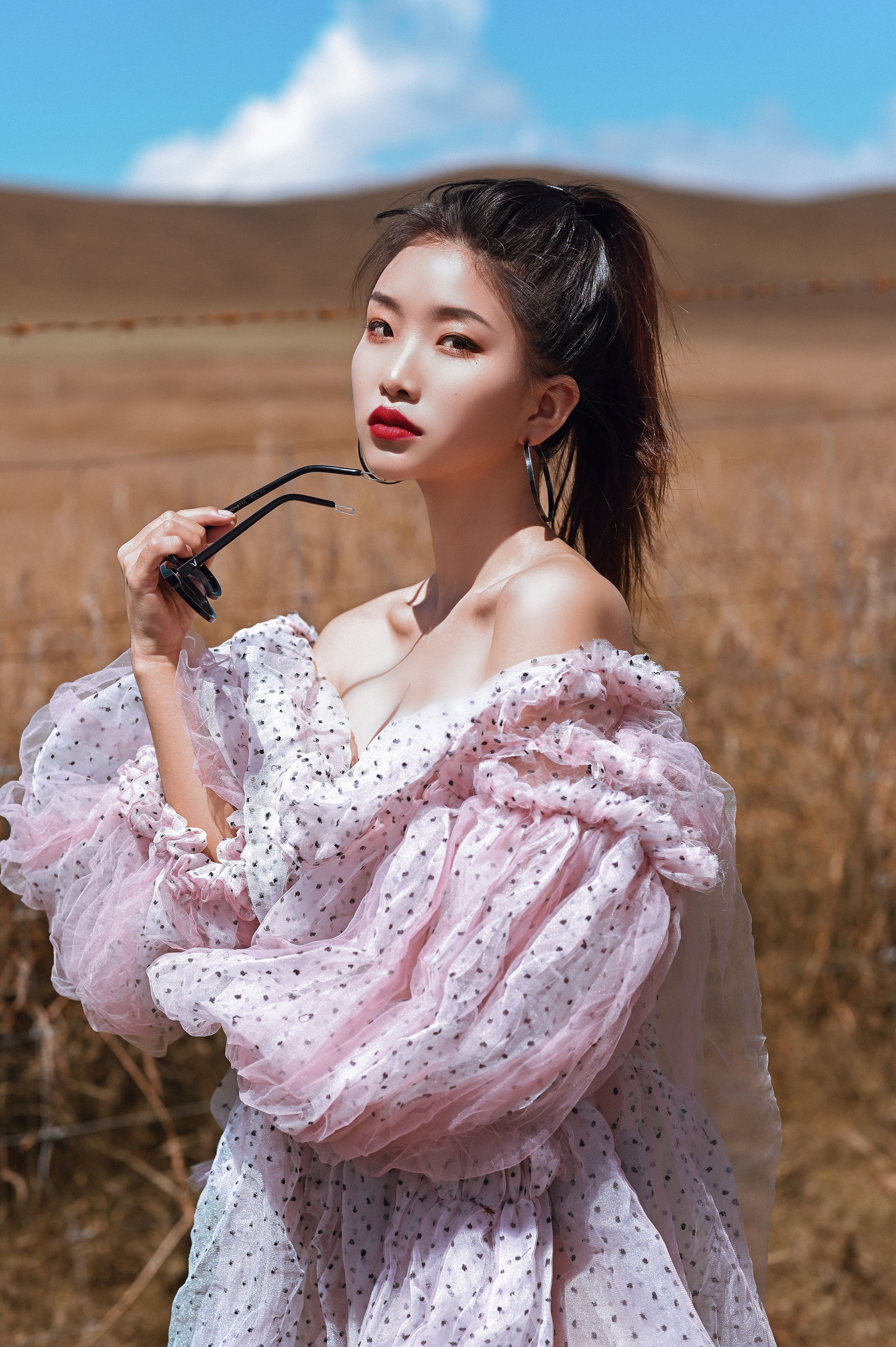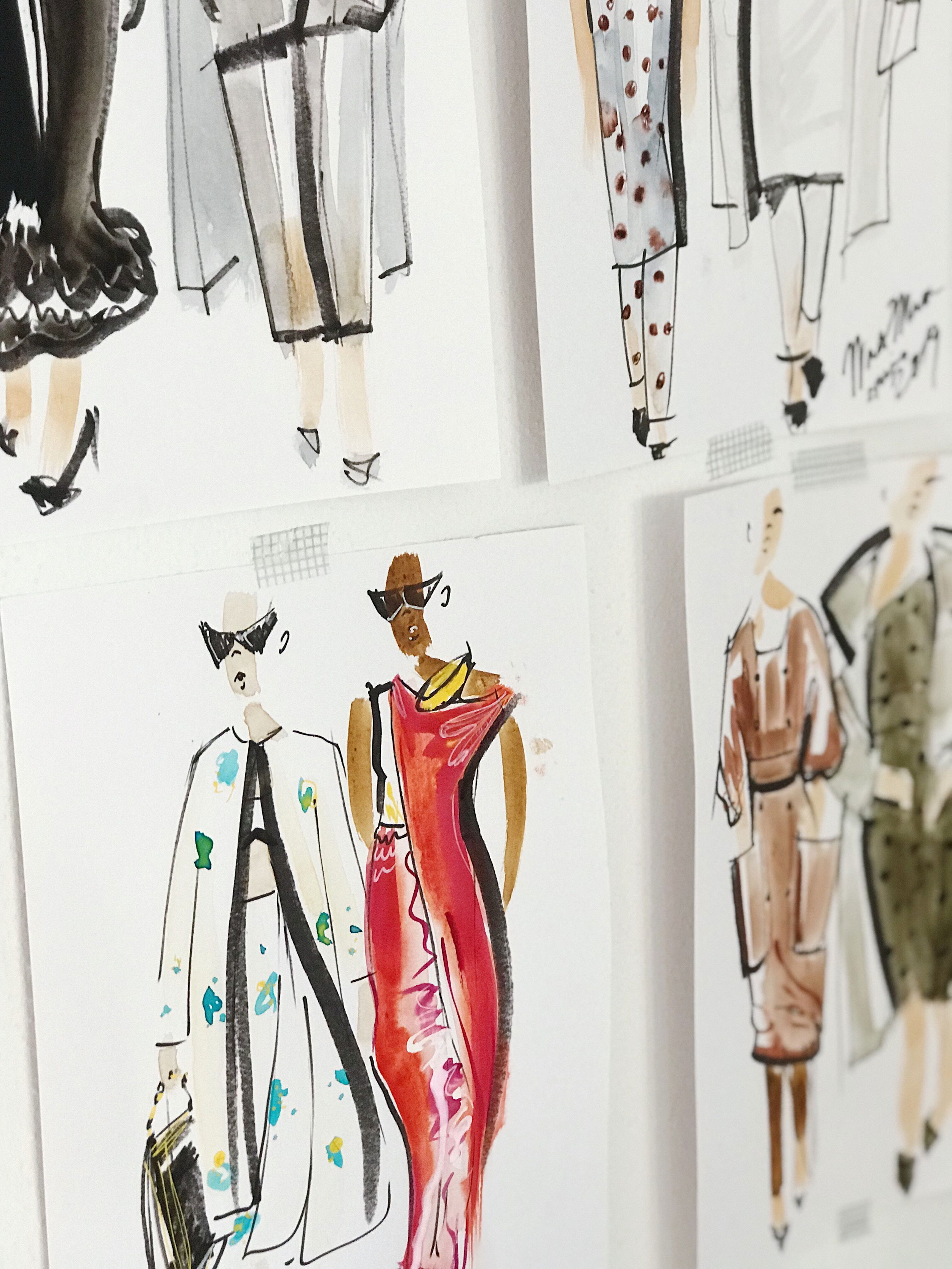Empowerment through Fashion: Expressing Yourself with Style
Fashion is more than just clothing; it's a form of self-expression and empowerment. The way we dress reflects our personality, influences our confidence, and can even be a catalyst for positive change in our lives. In this article, we'll explore the profound relationship between fashion and empowerment, delving into how clothing can serve as a powerful tool for expressing oneself and boosting self-esteem.

The Language of Clothing
Fashion is a universal language that transcends cultural and linguistic barriers. It allows individuals to communicate who they are, how they feel, and what they stand for without saying a word. Here's how clothing serves as a means of self-expression:
Personal Style: Your clothing choices convey your unique personal style, whether it's classic, bohemian, minimalist, or eclectic. Your style is an extension of your identity.
Mood and Emotions: The colors, patterns, and textures you choose can reflect your mood and emotions. Vibrant colors may express happiness, while dark hues can signify introspection.
Values and Beliefs: Slogan tees, ethical fashion choices, or attire that represents social causes can express your values and beliefs, making a statement about what you stand for.
Cultural Identity: Clothing can be a powerful way to celebrate and express one's cultural heritage, connecting individuals to their roots.
Confidence Booster: Wearing clothing that makes you feel confident can impact your self-esteem and overall well-being. When you look good, you often feel good.
Empowerment: Fashion can empower individuals to break societal norms, challenge stereotypes, and embrace their true selves.
Embracing Diversity and Inclusivity
Fashion has evolved to embrace diversity and inclusivity, championing a wide range of body types, genders, and cultural backgrounds. The fashion industry, once criticized for promoting unrealistic beauty standards, is now celebrating individuality and authenticity.
Body Positivity: The body positivity movement has gained momentum, encouraging people to love and accept their bodies regardless of size or shape. Brands and influencers are promoting body diversity and inclusivity in fashion.
Gender Fluidity: Fashion is becoming increasingly gender-neutral and inclusive. Clothing lines and designers are creating styles that defy traditional gender norms, allowing individuals to express their gender identity freely.
Cultural Appreciation: Cultural appropriation is being replaced by cultural appreciation. Fashion enthusiasts are encouraged to celebrate and learn about different cultures through their clothing choices while respecting cultural heritage.
Sustainability: Ethical and sustainable fashion is gaining popularity, with consumers and designers prioritizing environmentally friendly and fair labor practices. This shift towards conscious fashion reflects a desire for positive change.
Empowerment Stories through Fashion
Fashion has the power to transform lives and empower individuals in remarkable ways. Here are a few inspirational stories of empowerment through fashion:
1. Dress for Success
Organizations like Dress for Success provide professional attire and career development support to women in need. By dressing confidently for job interviews, these women gain the self-assurance needed to secure employment and change their lives.
2. Gender Expression and Acceptance
Fashion has played a crucial role in the lives of many transgender and gender-nonconforming individuals. Through clothing, they can express their true selves, helping them navigate their journey of self-discovery and acceptance.
3. Empowering Entrepreneurs
The rise of e-commerce and social media has empowered countless individuals to start their own fashion businesses. Independent designers and entrepreneurs can now reach a global audience, turning their passion for fashion into successful careers.
4. Inclusivity and Adaptive Fashion
Inclusivity in fashion has led to the development of adaptive clothing designed for individuals with disabilities. These innovative designs empower people to dress comfortably and independently, regardless of their physical challenges.
Tips for Using Fashion as a Tool for Empowerment
Here are some practical tips for using fashion to express yourself and boost your self-esteem:
Know Your Style: Discover your personal style by experimenting with different looks and paying attention to what makes you feel confident and comfortable.
Quality over Quantity: Invest in well-made, timeless pieces that you'll cherish for years rather than constantly chasing fleeting trends.
Support Ethical Brands: Choose to support brands that prioritize ethical and sustainable practices, aligning your fashion choices with your values.
Celebrate Your Identity: Embrace your cultural heritage and identity through your clothing choices. It's a beautiful way to celebrate who you are.
Body Positivity: Practice self-love and body positivity by focusing on how clothing makes you feel, rather than striving for an idealized body shape.
Experiment Fearlessly: Don't be afraid to step out of your fashion comfort zone and try new styles. You might discover a look that empowers you in unexpected ways.

Conclusion
Fashion is a potent form of self-expression and empowerment. It allows us to communicate our identity, values, and emotions while celebrating our uniqueness. The fashion industry's increasing embrace of diversity, inclusivity, and sustainability reflects a growing desire for positive change and empowerment.As you navigate the world of fashion, remember that the clothes you choose to wear are not just fabric and threads; they are powerful tools for expressing yourself, boosting your self-esteem, and making a positive impact on the world.
Sources:
- Vogue - How Fashion Has Helped Shape Identity
- TEDx - Fashion Your Identity: Katya Baxter at TEDxUniversityofNevada
- BBC - The Empowering Impact of Dressing Well
- The Guardian - The Power of Fashion: What Clothing Tells Us About the Women Who Wear It
- The New York Times - The Power of Dressing With Intention